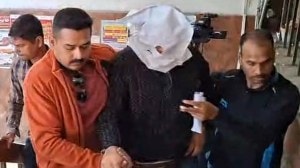Limits of ground sensors on the LoC
US Defence Secretary Donald Rumsfeld recently announced the possibility of placing US ground sensors on the LoC to check infiltration into t...

US Defence Secretary Donald Rumsfeld recently announced the possibility of placing US ground sensors on the LoC to check infiltration into this country. While Rumsfeld’s suggestion could set the tone for a new US involvement in the J&K imbroglio, questions arise on the efficacy of such a step.
The Indian response has so far been to study the proposal and it should do so in the context of earlier efforts to deploy technology for surveillance and detection of infiltration. There are sensors already deployed along the LOC for the last few years and the army and para-military forces have been able to gather evidence of infiltration using such devices in many cases. While the international community has been quite indifferent to the findings of such exercises, Pakistan has flatly refused to acknowledge them and continued to do so until US deputy secretary of state, Richard Armitage, did some tough talking with General Musharraf recently. The context in which the General made the assurance to ‘‘stop infiltration permanently’’ should therefore be observed by the international community.
There are various types of sensors used for defence and surveillance. Notable among them are radar sensors, acoustic sensors, magnetic sensors, seismic sensors, electro-optic sensors — such as infrared passive sensors and target recognition sensors. In the Vietnam war and the conflict in Bosnia, sensors were used extensively to gain tactical advantages. In northern Sinai, Israel use ground sensors to monitor various movements. The US, UK, France, Japan and Israel are the leaders in producing such sensors. Ground penetration and foliage penetration are the major possibilities of radar sensors that can detect air, ground and sub-surface targets. Acoustic, magnetic and seismic sensors are generally ground-based and provide real-time tracking of movements. Information from numerous acoustic sensors is transmitted digitally to a central monitoring station. Electro-optic sensors provide passive and active target monitoring facilities. It can detect, classify, recognise and identify targets.
The deployment of ground sensors across the LoC has many aspects that need to be considered. First, the climatic conditions are not very conducive for the purpose. The terrain is very difficult and, at places, the line of sight is not easily found. Water logging caused by continuous rainfall could also render sensors dysfunctional. So to position such sensors and possibly receive regular signals from them would be impossible in many places. Second, there is the possibility of false alarms caused by the movements of animals. Frequency management cannot generally be fine-tuned for effective monitoring. Third, monitoring of the transmits of these sensors is another issue. It could involve the presence of foreign experts in the region — something India has serious objections to. Four, the number of sensors to be deployed is also huge and runs into a few thousands if the whole of the LOC has to be covered, and if we are to benefit from this exercise, the entire stretch must indeed be covered. This could prove prohibitively expensive. Last, and most important, how successful can this effort be without Pakistan’s cooperation?
This brings us to another question — that of dependence on technology. Today technology changes faster then we can think and already there are anti-jamming devices in place to negate the effect of surveillance equipment. The same nations which sell such equipment to one nation, could just as easily peddle jamming devices to its enemy. Also how successful will technology be in stopping suicide bombers?
In other words, technology can at best be a means, it cannot be the end. The most important need of the hour is the global recognition of Pakistan’s hypocrisy. General Musharraf has made Pakistan an official ally in the war against terror to garner the West’s largesse and protect his seat. Unofficially, his agenda remains the same — of fomenting trouble in J&K. Unless the West can see through this gameplan, no technology, however sophisticated, can succeed.
- 01
- 02
- 03
- 04
- 05































